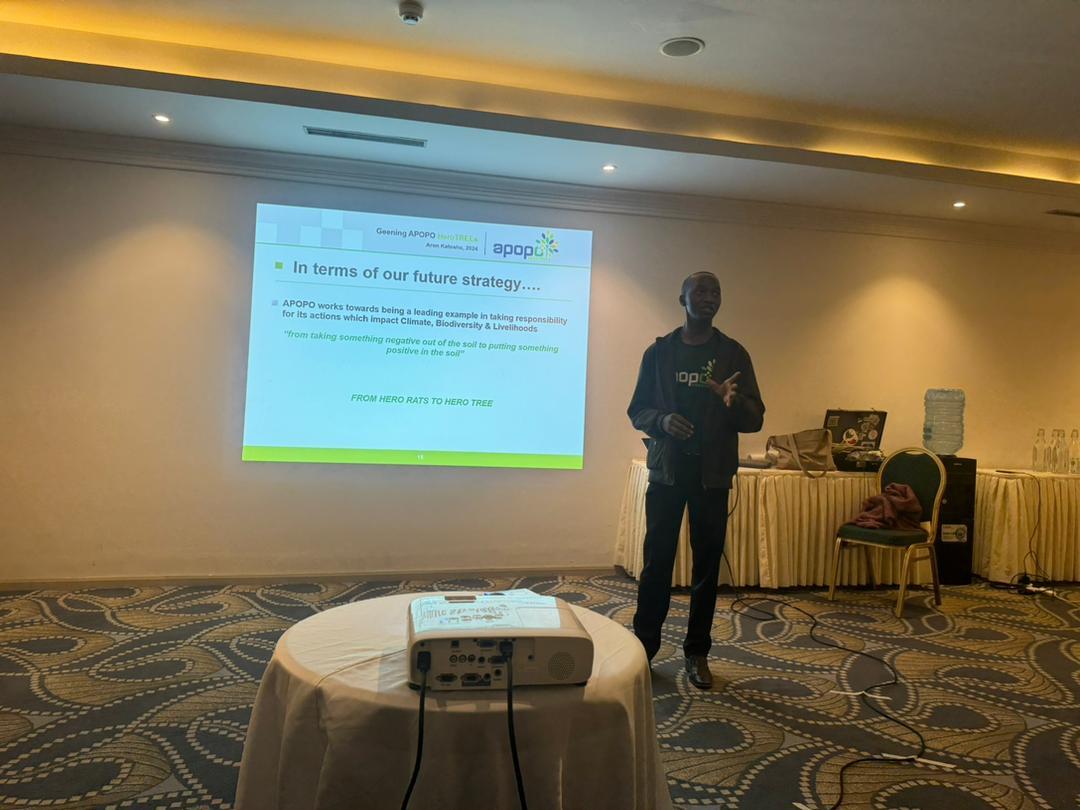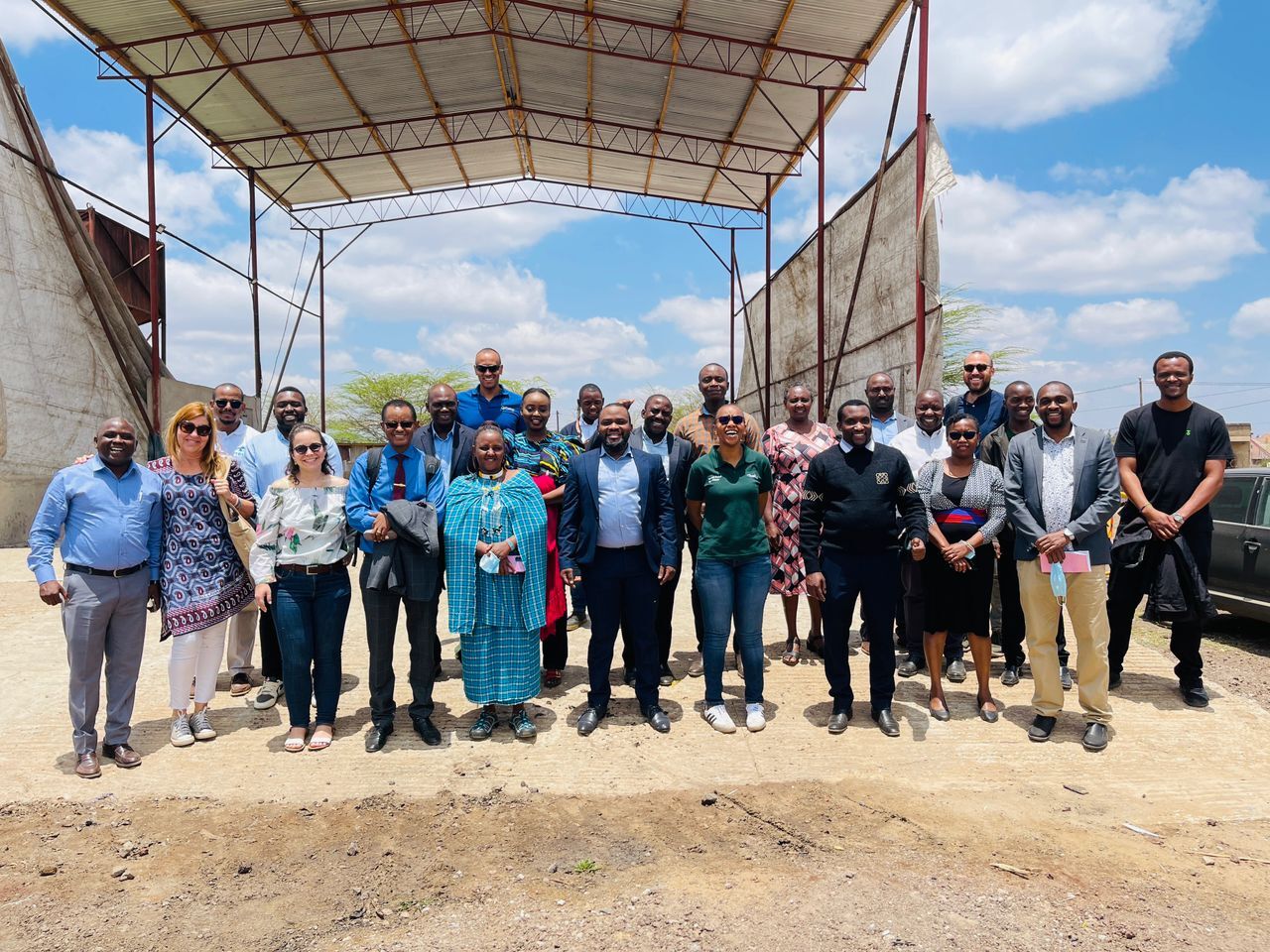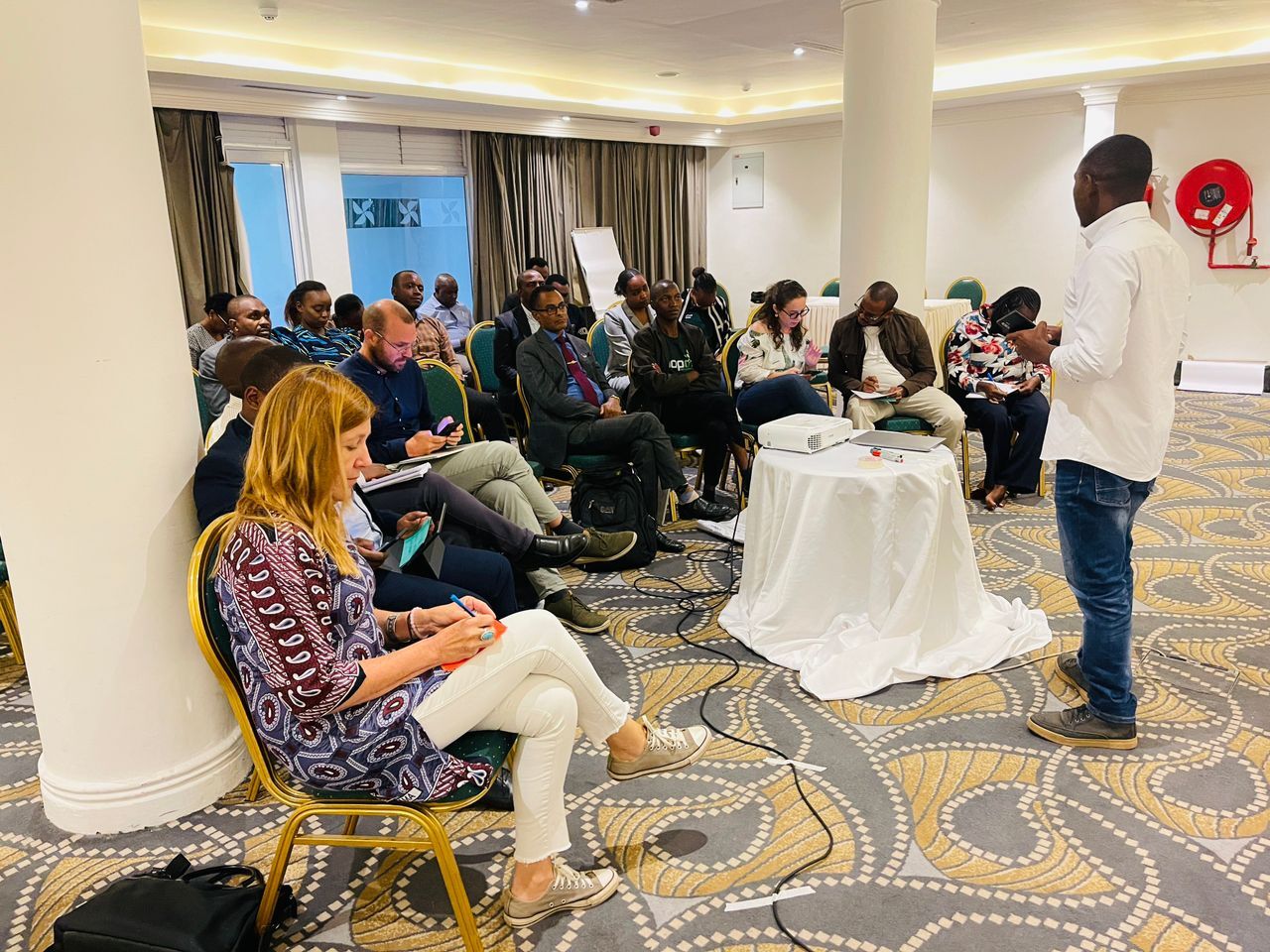APOPO was honored to take part in the Joint Strategic Framework (JSF) learning event for Belgium-supported Non-Governmental Actors (BNGAs) in Arusha, Tanzania, held from September 12-13, 2024. The event brought together key actors in development and environmental sustainability, with APOPO represented by Dr. Tefera Agizew, Head of Tuberculosis (TB) Programs, and Aron Katosho, HeroTREEs Officer.
Focus on Environmental Sustainability
The JSF learning event focused on the theme of environmental sustainability, building on discussions from previous meetings in 2023 and earlier in 2024. This year’s theme offered a platform for participants to exchange ideas, share best practices, and collaborate on innovative solutions to reduce environmental impact.
Event Objectives
The key objectives of the event were:
- Exchange of Ideas: Participants showcased their initiatives and successes in promoting environmental sustainability.
- Mutual Learning: The event provided a space for mutual learning, where participants could gain insights from the practices of others.
- Collaborative Brainstorming: Attendees worked together to develop innovative solutions to environmental challenges.
- Impactful Outcomes: The goal was to equip participants with actionable steps to minimize environmental impact and contribute to long-term sustainability.
APOPO’s Contribution: HeroTREEs and Tuberculosis Awareness
As one of the BNGA participants operating in Tanzania, APOPO highlighted its ongoing commitment to both environmental sustainability and public health. Two of APOPO’s major programs, HeroTREEs and Tuberculosis Awareness, were central to its contribution to the event.
HeroTREEs Program: Planting for the Future
The HeroTREEs program is a key part of APOPO’s efforts to combat climate change. Through this initiative, APOPO aims to plant 150,000 trees, offsetting its carbon emissions while also improving local ecosystems. This reforestation effort not only sequesters carbon but also promotes biodiversity and supports sustainable agriculture.
Supporting Communities through Syntropic Agroforestry
The HeroTREEs program employs syntropic agroforestry, a farming approach that mimics natural ecosystems to enhance soil health, restore degraded land, and increase crop yields. This approach empowers local communities by providing them with sustainable livelihoods. By integrating tree planting with crop cultivation, farmers can sustainably manage their land and benefit from additional income.
At the JSF event, Aron Katosho, HeroTREEs Officer, emphasized the program’s dual role in addressing both environmental challenges and supporting communities. By focusing on agroforestry, the program helps build resilience to climate change while promoting sustainable development at the local level.

Tuberculosis Awareness and Capacity Building
In addition to its environmental programs, APOPO is deeply involved in public health initiatives, particularly in the fight against TB. During the JSF event, Dr. Tefera Agizew, Head of TB Programs, led a half-day tuberculosis awareness training session for event participants. This training was part of APOPO’s broader efforts to build capacity and raise awareness about TB elimination, showing how environmental and health initiatives can complement each other.
Synergies and Collaboration
The JSF event also provided an opportunity for APOPO and other BNGAs to explore potential synergies in their work. Collaboration with organizations like IdP, IPIS, Light for the World, Plan International Tanzania, Rikolto, TRIAS, VIA Don Bosco, VLIR-UOS, and Enabel was a key focus of discussions. APOPO highlighted the ways in which its programs could align with the efforts of other organizations to create shared impact across environmental sustainability and public health sectors.
Looking Forward: A Greener and Healthier Future
With the support of Belgium’s Directorate-General for Development Cooperation and Humanitarian Aid (DGD), APOPO continues its commitment to advancing both environmental sustainability and public health. The JSF learning event in Arusha provided a platform for valuable exchanges, collaborative brainstorming, and actionable outcomes that will guide future efforts to build a greener, healthier future.



